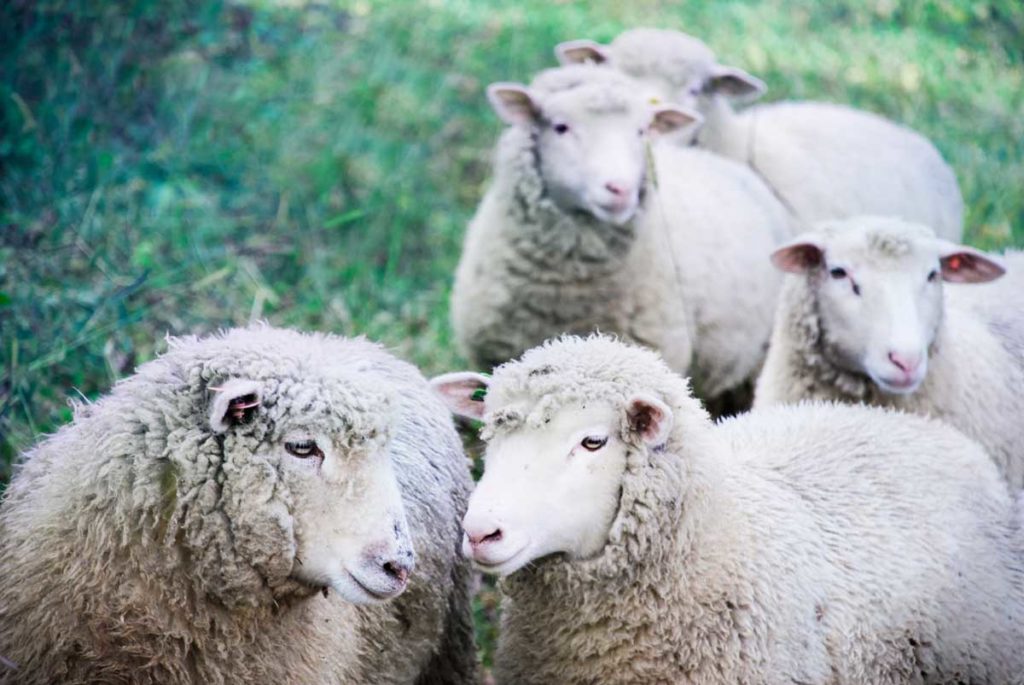When it comes to the topic of sheep, most of us have faulty theology. And it’s hurting our faith. To understand what I mean, let’s start with a one question survey.
Question. “Do sheep tend to wander or remain in the same grazing area when unsupervised?”
The most likely answer goes something like this: “Of course they wander. The Bible tells us so. Remember the metaphor for our sinful nature? “All we like sheep have gone astray…” (Isaiah 53:6)
Truth be told, sheep do not wander by nature, only when there is a lack of proper living conditions. The ‘wandering sheep’ metaphor from Isaiah is quoted often, yet there are more scriptures that describe sheep as followers than wanderers. Also, it was only common for sheep to wander in Isaiah’s day due to harsh conditions and plentiful predators. Without those adversarial conditions, wandering is not normal for sheep.
Like me, you’ve probably never actually shepherded sheep. So let’s have an actual 21st century shepherd weigh in on the topic. His name is James Rebanks and he has an unexpected tale to tell.
Rebanks is from an 800 square mile area in northern England called The Lake District. It is a beautiful area of rolling hills filled with fertile grasslands. For centuries, most of this land has not been privately owned but is held in common and farmed by all the commoners. The land is divided into sections referred to by the English as fells. Hundreds of families each have their own flocks of sheep which they allow to graze without any fences.
How does this work? According to Rebanks, “there are about 10 different flocks of sheep on our fell, a vast unenclosed piece of moorland and mountain. Because there are no large predators, the sheep are left to graze alone, but are brought down several times a year for lambing, clipping and other key activities in the life of the flock. Beyond … lie other unfenced areas of mountain land, other fells, farmed by other commoners, so in theory our sheep could wander right across the Lake District. But they don’t because they know their place on the mountains. They are “hefted” – taught their sense of belonging by their mothers as lambs – an unbroken chain of learning that goes back thousands of years.” ( excerpted from the book The Shepherd’s Life: Modern Dispatches From an Ancient Landscape, By James Rebanks)
The Lake District of northern England is one of the few remaining places on earth where there exists an unbroken succession of generations of farmers and their animals. Multiple generations of animals have thrived side by side on the same land. Wandering from the generational plots is the exception not the rule.
By eliminating predators, private ownership and competition between farmers, the Lake District provides a unique example of how life could be and should be for sheep. Outside the Lake District, these animals have many threats to their security. They are bought and sold, changing location and owners and thus robbed of their God-given ability to nurture the next generation.
In stark contrast, James Rebanks and his fellow commoners have provided us a glimpse into God’s original design for sheep; that each generation would nurture the next generation within the safety of their own “fell” so that they become “hefted”, i.e. attached to the best grazing ground.
That changes what I think about sheep. It also changes how I read what the Bible says about sheep. After all wasn’t that parable Jesus told in Matthew 18 about one sheep that went astray and 99 that didn’t? And in John chapter 10 where Jesus refers to himself as the Good Shepherd, His sheep follow Him because they hear his voice not because they’re fenced in!
I believe that though it seems common in our culture for generations to separate from each other and for the children of Christian parents to wander from the faith, it’s not the way it has to be. With the correct conditions present, multiple generations are more likely to stay connected than to separate.
We must never allow our expectations to be set by external culture. There is something in the DNA of every human heart that wants to find its way to graze in the green pastures of the Good Shepherd. There is a Father God who has promised to be faithful to a thousand generations. There is a way for you and I to approach life that makes it very likely the next generation will take what we have been carrying and continue in the paths of righteousness.
(This topic is covered in more detail in Part Four of The great Exchange.)

Comments are closed.